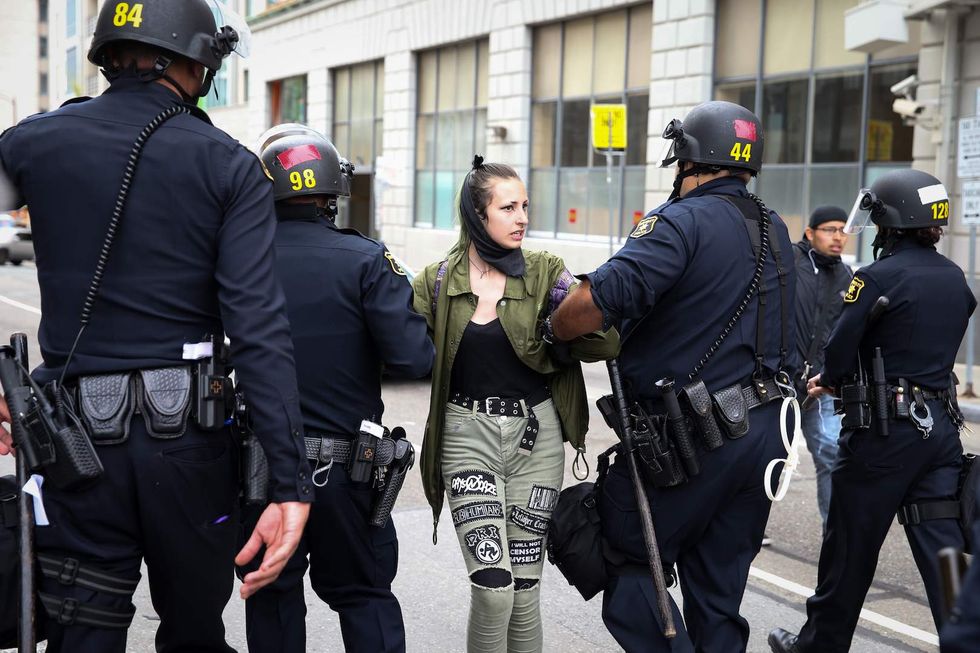
A student senator at Berkeley is worried that police presence on campus is traumatizing to minorities. The issue was raised in relation to the cancellation of Ann Coulter's speech last week. (Elijah Nouvelage/Getty Images)

On the heels of the controversy surrounding the cancellation of Ann Coulter's speech at University of California, Berkeley, a university student senator who originally branded Coulter's speech a "violent conversation" told the school newspaper that police presence on campus is traumatizing to minorities.
ASUC Sen.-elect Juniper Angelica Cordova-Goff told the Daily Californian in an email that the police’s “continued, heightened presence re-traumatizes students who come from communities with complicated relationships to the state."
"I do not think campus safety must rely on the police," she said. “I think [UCPD] must be active in recognizing the trauma their presence alone brings to some students and work to limit visibility while remaining an open resource to those who choose to use it."
UCPD stationed more than 300 mutual aid officers around the campus area as a preemptive measure after planned Coulter's speech at UC Berkeley was canceled Wednesday because of threats of violence after protests of the controversial political pundit sprung up in the area. Coulter originally insisted she would speak on campus whether she was allowed to or not, but eventually backed off the idea after two conservative sponsors for the speech pulled their support.
According to Heat Street, Cordova-Goff also told the LA Times that she was glad the speech was canceled because Coulter's rhetoric hurts minorities and LGBT groups who have the right to "feel safe" on their own campus.
"I don’t think that anyone’s free speech is being impaired," she said at the time. “I think sometimes the free speech amendment is used as a way to frame violent conversations as a matter of free speech.”